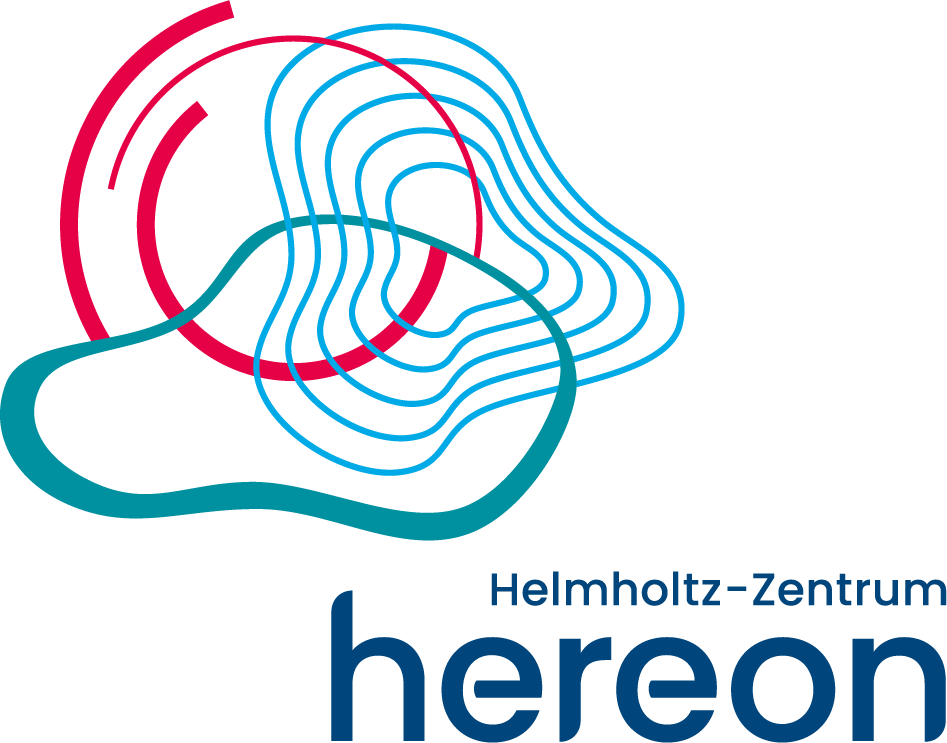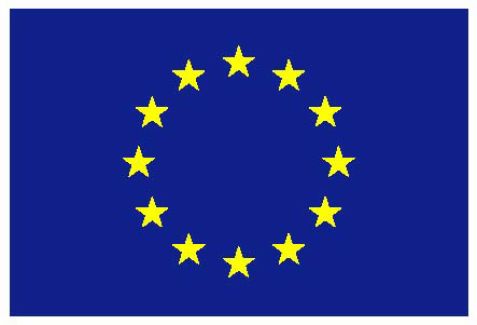MLZ ist eine Kooperation aus:
 > Technische Universität München
> Technische Universität München > Helmholtz-Zentrum Hereon
> Helmholtz-Zentrum Hereon
 > Forschungszentrum Jülich
> Forschungszentrum Jülich
MLZ ist Mitglied in:
 > LENS
> LENS > ERF-AISBL
> ERF-AISBL
MLZ in den sozialen Medien:

MLZ
Lichtenbergstr.1
85748 Garching
Projekte gefördert durch die Europäische Union
Aktuelle Projekte
Proposer: TUM, AREVA-NP, CEA, SCK-CEN, ILL
Coordination: TUM
Grant period: 01/06/2015 – 31/05/2019
Description/Objective:
In the framework of the joint international efforts to reduce the risk of proliferation by minimising the use of highly enriched uranium, a new research reactor fuel based on uranium-molybdenum (UMo) alloys is being developed by the HERACLES group. HERACLES is composed of AREVA-CERVA, CEA, ILL, SCK•CEN and TUM, all organisations with a long-standing history in fuel manufacturing and qualification. HERACLES works towards the qualification of UMo fuels, based on a series of “comprehension” experiments and manufacturing developments.
There are two types of UMo fuel fine particles dispersed in an Al matrix, and monolithic foils. The qualification phase of these fuels is scheduled to begin in 2019; the project will prepare the way with an initial comprehension phase, to improve our understanding of the fuels’ irradiation behaviour and consequent the manufacturing/industrialisation process. One of the key components in the project is the SEMPER FIDELIS irradiation test, which aims at investigating the fuel swelling phenomenon and the effects of coating, with a view to arriving at procedures for fuel engineering.
The challenges as regards manufacture lie in the basic elements of both fuel types’ production process and plate manufacturing. For the dispersed fuel, this includes the pin casting for the rotating electrode process and the atomization process itself. For the monolithic fuel, this concerns the development of coating for the foils. All these components are essential to prepare the fuel qualification phase.
High-performance research reactors are at the start of the supply chain for medical isotopes like 99Mo. Successful conversion to lower enriched and where possible LEU fuel is therefore a key element in the mitigation of the risks surrounding the supply of isotopes as demanded by NFRP 8. However, the role of the HPRRs is far broader, as they are providing scientific and engineering solutions to questions of high societal importance.
Proposer: Jülich Centre for Neutron Science (JCNS), Technische Universität München (TUM), Helmholtz-Zentrum Geesthacht (HZG)
Coordination: ILL
Grant Period: 01/10/2015 – 30/09/2019
Description/Objective:
SINE2020, world class Science and Innovation with Neutrons in Europe in 2020, is a project with two objectives: preparing Europe for the unique opportunities at the European Spallation Source (ESS) in 2020 and devloping the innovation potential of neutron large scale facilities. New and improved services will be developed by the 18 partners in 13 countries including outreach, samples, instrumentation and software. These services are the key to integrating the ESS in the European neutronn ecosystem, ensuring success from day one. They are also the basis for facilitating direct use of neutron large scale facilities by industry.
Activities of MLZ in SINE2020 include:
- dissemniation and outreach (TUM)
- industry consultancy (HZG)
- deuterated polymer synthesis (JCNS)
- crystal growth (JCNS)
- sample environment devices (HZG and TUM)
- detector development (FZJ and TUM)
- development of analysis software (JCNS)
Proposer: Jülich Centre for Neutron Science (JCNS)
Coordination: CNR – IOM, Italy
Grant period: 01/09/2015 – 31/08/2019
Description/Objective:
NFFA sets out a platform to carry out comprehensive projects for multidisciplinary research at the nanoscale. Advanced infrastructures specialized in growth, nano-lithography, nano-characterization, theory and simulation and fine-analysis with Synchrotron, FEL and Neutron radiation sources are integrated in a multi-site combination to develop frontier research. NFFA will enable coordinated access to infrastructures on different aspects of nanoscience research that is currently not available at single specialized sites. Approved user projects will have access to the best suited instruments and support competences.
The own research activities of NFFA will address key bottlenecks of nanoscience research.
Proposer: Jülich Centre for Neutron Science (JCNS)
Coordination: Forschungszentrum Jülich
Grant Period: 01/01/2015 – 31/10/2019
Description/Objective:
SoNDe is a project for the development and construction of a high-flux capable neutron detector. The development focuses on the following specifications:
• high-flux capability, capable of handling the peak-flux of up-to-date spallation sources (gain factor of 20 over current detectors)
• high-resolution of 3 mm by single-pixel technique, below by interpolation
• high detection efficiency of 80 % or more
• no beam stop necessary, thus enabling investigations with direct beam intensity
• strategic independence of 3He
• time-of-flight (TOF) capability, necessary to exploit maximum flux, with a time resolution in the µs regime
• modularity, improving maintenance characteristics of today’s neutron detectors
This project includes partners from France (Laboratoire Léon-Brillouin), Norway (IDEAS) and Sweden (ESS and Lund University).
Detectors such as this are required to be able to use high flux neutron sources as the FRMII or the upcoming European Spallation Source ESS to capacity. They will enable outstanding research on a range of neutron instruments allowing research in areas such as physics, chemistry and biology ranging over material science medical and pharmaceutical science.
https://www.fz-juelich.de/ics/ics-1/EN/Leistungen/ESS/SoNDe-Projekt/_node.html/
Proposer: Forschungszentrum Jülich, Technische Universität München (TUM), Helmholtz-Zentrum Geesthacht (HZG)
Coordination: DESY
Grant period: 01/09/2015 – 31/08/2018
Description/Objective:
CREMLIN is an EU project to support the European Russian cooperation in planning, construction and scientific use of large scale infrastructures. The Forschungszentrum Jülich is coordinating the workpackage “Neutrons”. The aim of this workpackage is to integrate the Russian neutron source PIK which is currently under construction into the European landscape of research with neutrons. PIK is planned to start operation in 2018.
The MLZ cooperation partners, namely the Jülich Centre for Neutron Science (JCNS), the TUM and HZG with their long lasting experience in instrumentation and user operation are well suited to support the Russian neutron user community in optimizing the instrument suite and harmonize the neutron research programs within Europe.
Other partners within the project include the Institut Laue-Langevin (ILL) in France and the European Spallation Source (ESS) in Sweden.
Consortium: Ludwig-Maximilians-Universität München, Technische Universität München, Université de Rennes 1, Université de Montpellier 2, Universidad di Torino
Coordination: Prof. Dr. Philippe Rabiller , Université de Rennes 1
Grant period: 2010 – 2018
Description/Objective:
Erasmus Mundus is a programme that offers financial support for institutions and scholarships for students worldwide in order to enhance quality in higher education and foster academic cooperations between Europe and the rest of the world.
MaMaSELF is a two year Erasmus Mundus European Master Course in Materials Science that includes access to “Large Scale Facilities” such as the FRM II (Garching), or DESY (Hamburg) to characterize materials with neutron and synchrotron radiation.
https://www.mamaself.eu
https://ec.europa.eu/education/programmes/mundus
DEADLINE FOR THE APPLICATION 2016-2018 FOR EUROPEAN AND NON-EUROPEAN STUDENTS: 31 JANUARY 2016 and 28 February 2016, respectively; online application: https://www.mamaself.eu
Coordination: Forschungszentrum Jülich
Grant period: 07/2017 – 06/2021
Description/Objective: The distributed research infrastructure EUSMI provides the community of soft-matter researchers with an open-access infrastructure to support and extend their research. EUSMI is bundling top-level scientific infrastructure of 18 research groups in 15 partner institutions from 10 different countries, among them two industrial partners on three platforms for characterization, synthesis, and modelling. The use of EUSMI installations is offered free of charge and financial contribution to related travel and accommodation costs is granted to successful applications from academia and from industry, thanks to financial support from the European Union’s Horizon 2020 research and innovation programme.
Access is provided to- neutron scattering instruments at MLZ
- a coherent x-ray beam line
- most advanced electron microscopes
- world leading synthesis laboratories
- Europe’s leading labs for NMR and dielectric spectroscopy
- one of the fastest supercomputers in Europe
- about 70 highly specialized instruments for a large variety of experiments
The existing infrastructure is continuously improved and advanced by Joint Research Activities (JRA), and an ambitious networking programme is ensuring efficient dissemination and communication, as well as continued education of established researchers and training of an emerging generation of scientists.
Further information about the network, detailed descriptions of the installations and the online proposal system are available at www.eusmi-h2020.eu.
Abgeschlossene Projekte
Proposer: Technische Universtität München /FRM II
Coordination: ILL
Grant period: NMI3-I: 02/2009 – 01/2013; NMI3-II: 02/2012 – 01/2016
Description/Objective:
The “Integrated Infrastructure Initiative for Neutron Scattering and Muon Spectroscopy” (NMI3) combines 18 partner organisations in 12 countries, including 8 facilities. The aim of NMI3 is to foster joint pan-European research activities by integrating all the existing infrastructures in the fields of neutron and muon research in Europe.
The following activities and tools were implemented within NMI3:
• Transnational ACCESS provides European users access to all relevant European research facilities and hence the possibility to use the best adapted infrastructure for their research.
• Joint Research Activities (JRA) focus on specific R&D areas to develop methods for next-generation instrumentation in European facilities and academic institutions with relevant know-how.
• Dissemination of knowledge and educational events all help in the training of future generations of users.
• Networking and common management help strategic decision-making processes from a European perspective.
MLZ and NMI3
The MLZ is involved in several JRAs dealing with Imaging (WP18-NMI3-II), Polarised Neutrons (WP19-NMI3-I), Detectors (WP22), Advanced Neutron Tools for Soft and Bio materials (WP20-NMI3-II), Sample Environment (WP21-NMI3-I)[IC1]
Coordination: Forschungszentrum Jülich
Grant period: 01/2011 – 12/2014
Description/Objective:
The FP-7 project European Soft Matter Infrastructure (ESMI), granted by the EU for 4 years, aims to provide existing interdisciplinary infrastructure in the areas of “soft nanotechnology” and soft matter materials research.
The access to a broad range of experimental techniques, synthesis laboratories and computer facilities is offered free of charge to the community of European soft matter scientists upon the positive evaluation of submitted proposals. Joint research activities aim to improve existing infrastructure. The project is rounded off by a gender equality programme, designed to promote the participation of women in soft matter science and a networking programme for disseminating knowledge and educating the next generation of soft matter scientists.
ESMI bundles the top-level scientific infrastructure of 22 research groups in 17 partner institutions from ten different countries, including four industrial partners, on three platforms (experimental, synthesis, supercomputing platform).
Forschungszentrum Jülich is one of the 17 partners and is active on all three platforms with 5 different research groups.
Coordination: Forschungszentrum Jülich
Industry partners: DSM, Lanxess, Chemtura. SABIC
Grant period: 9/2010 – 8/2014
Description/Objective:
Methylaluminoxane (MAO) activators in the molecular polyolefin (PO) factory, known as “MAO-ROBOTS”, are the basis for a collaborative project funded by the European Commission’s 7th Framework Programme “NMP-2009-1.2-2: Molecular factory: manufacturing objects with predictable and controllable properties”. The MAO-ROBOTS consortium performs research on nano-to-micro-sized systems used for industrial polyolefin production in order to develop sustainable processes for nano-structuring in specific applications, which should result in high potential industrial and/or market relevance.
Coordination: University of Leeds
Grant period: 2/2009 – 1/2013
Description/Objective:
DYNACOP is a 7th Framework Marie Curie Initial Training Network, involving ten universities and two industrial companies across Europe.
The scientific objective of DYNACOP is to obtain a fundamental understanding of the flow behaviour and the dynamics of blends of topologically complex macromolecular fluids and their role in processing of nano-structured blends. These materials exhibit complex dynamics and rheology and, in many cases, show hierarchical relaxation over many different time scales. This in turn affects the processing and properties of the final materials. Such fluids include branched low density polyethylene, which is a fundamental material that appears in plastics of all kinds. The processing of these materials, and the problems encountered due to their properties, has frustrated and discouraged industry for many years; a simple recurring problem is, for example, instability during extrusion that leads to costly imperfections in the resulting plastic parts.. The ability to predict and control this behaviour as a function of molecular chemistry has attracted a long history of collaboration between academia and industry, including among the partners of DYNACOP.
Coordination: Forschungszentrum Jülich
Grant period: 12/2009 – 11/2012
Description/Objective:
The Network of Excellence (NoE) SoftComp is a project of the European Commission developed under the 6th Framework Programme. It aims to establish a knowledge base for an intelligent design of functional and nanoscale soft matter composites. It aims to do so by overcoming the present fragmentation of this important field for the development of new materials at the interface of non-living and living matter where the delicate principles of self-organization in polymeric, surfactant and colloidal matter are ubiquitous.
By working on both materials and the disciplinary axes of fragmentation, the leading researchers represented by SoftComp will create an integrated team capable of stimulating European potential in soft matter composite materials and disseminating excellence using extensive training and knowledge transfer schemes.
Coordination: Max Planck Institute of Plasma Physics (IPP), Garching
Grant period: 10/2008 – 09/2011
Description/Objective:
Fusion Energy Materials Science – Coordination Action (FEMaS-CA) – is an EU 7th Framework Programme project involving 27 European universities and research centres and coordinated by the Materials Research Division of the Max Planck Institute of Plasma Physics (IPP) in Garching. The objective of this programme is to “form a strong European network involving institutions and large-scale facilities to strengthen the application of advanced materials characterization methods as an essential ingredient for the successful development of fusion reactor materials in Europe”, as stated in the Grand Agreement for the FEMaS – coordinated action.
The Research Neutron Source Heinz Maier-Leibnitz (FRM II) brings the power of neutron-based methods to the study of material problems in FEMaS. ANTARES, NEPOMUC, and STRESS-SPEC have been in great demand as the most powerful instruments at FRM II in the FEMaS-project.

MLZ ist eine Kooperation aus:
 > Technische Universität München
> Technische Universität München > Helmholtz-Zentrum Hereon
> Helmholtz-Zentrum Hereon
 > Forschungszentrum Jülich
> Forschungszentrum Jülich
MLZ ist Mitglied in:
 > LENS
> LENS > ERF-AISBL
> ERF-AISBL
MLZ in den sozialen Medien:


